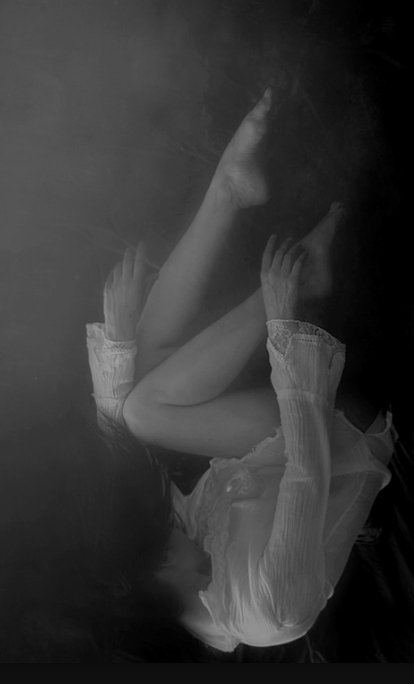All I lov’d — I lov’d alone
Update for And all I got’s a pocketful of flowers on my grave
and Etwas distinkt Metaphysisch-Transzendentales:
A friend of mine (yes, I have a few) recently quoted me a line by Poe: „And all I loved I love alone“, allegedly from a poem named Alone. Looking it up, I neither found it in my English nor my German edition of Poe’s „complete“ works, the latter even bilingual, translated by Hans Wollschläger.
There is a reason for Alone, originally Original, remaining uncollected: it is a true bootleg.
Poe wrote this poem in the autograph album of Lucy Holmes, later Lucy Holmes Balderston. The poem was never printed during Poe’s lifetime. It was first published by E. L. Didier in Scribner’s Monthly for September of 1875, in the form of a facsimile. The facsimile, however, included the addition of a title and date not on the original manuscript. That title was “Alone,” which has remained. Doubts about its authenticity, in part inspired by this manipulation, have since been calmed. The poem is now seen as one of Poe’s most revealing works. The same album also contains a poem by Poe’s brother Henry.
The original manuscript bears the number 55 in the upper right hand corner, as a page number within the album.
The website of the Maryland Historical Society includes a photograph of the original manuscript.
Going there:
Though we don’t have a great deal of Edgar Allan Poe materials in our library, we do have a poem entitled “Original,” which was handwritten into a volume of poetry owned by a Baltimorean named Lucy Holmes. The poem was not published in Poe’s lifetime, but finally appeared under the title “Alone” in an 1875 issue of Scribner’s Monthly. Though the poem was penned by a 20-year-old Poe, it seemed to reveal some of the inner turmoil that was always within the author, as well as foreshadow his shortened life. Though the provenance is a little unclear, it was donated by a woman named Emma Welbourn in 1969, who was most likely a descendant of Ms. Holmes. Not a lot is known of Lucy Holmes, except that she was known to be active in the literary circles of Baltimore. She most likely had Poe write the poem in her ledger sometime in 1829. This was a time period in Poe’s life shortly after he left West Point and returned to Baltimore. The fact that he wrote this poem in the ledger of a wealthy socialite provides fairly strong evidence that he was not a homeless wanderer at this point in his life as some have suggested.
——— Edgar Allan Poe:
Original
undated manuscript, about 1829, published 1875:
Further:
Though Poe’s poem is what truly makes this book unique, there are also approximately 100 other poems by Baltimore poets contained in its pages. The great majority of the poems seem to be written with the goal of pursuing courtship with Ms. Holmes. Poe’s poem stands out from the crowd by being autobiographical, dark, and depressing—pretty much the opposite tone of every other poem in the volume. It is not, however, the only poem in Edgar Allan Poe’s handwriting in the small book. At his brother W.H. Poe’s request, Edgar Allan copied one if his poems on the very next page. Once again it seems like another piece of literary sleaze with the purpose of impressing Lucy. The assumption that Lucy’s favor could be won with flattery was not completely baseless. One of the poets, „Isaiah“ (or „I… B….N“) who appears frequently in the ledger is most likely Isaiah Balderston, whom Lucy ended up marrying in 1830. If heavy handed love poems tickle your fancy then by all means come visit us at the H. Furlong Baldwin Library—we’d be happy to make this volume available for your perusal! (Eben Dennis)
This poem from I.. B…N may have been the very one that titillated young Lucy. I guess she wasn’t impressed by Edgar’s demons. MS 1796, MdHS
Sources and further reading:
Scribners Monthly „An Early Poem by Edgar Allan Poe“ September 1875
Ingram, John Henry. The complete poetical works of Edgar Allen Poe (New York : A. L. Burt Co., 1907) MP3.P743 1907, MdHS
Reilly, John E. The image of Poe in American poetry (Baltimore: Edgar Allan Poe Society, 1976) MP3.P743.R36, MdHS
Another source and even further reading: Edgar Allan Poe Society of Baltimore: Edgar Allan Poe — „Alone“ („From childhood’s hour . . .“), Reading and Reference Texts.
Special thanks to Frank T. Zumbach!
Images: Maryland Center for History and Culture: Poe and Alone.
Soundtrack: Lindi Ortega: Lived And Died Alone, from: Tin Star, 2013:
I guess I thought it couldn’t really hurt
To search for sweethearts underneath the dirt
Sure, they may be made of dust and bone
But I will take them home
from their lonely tombstone
To be with me
In the Dead Sea


Hinterlasse einen Kommentar